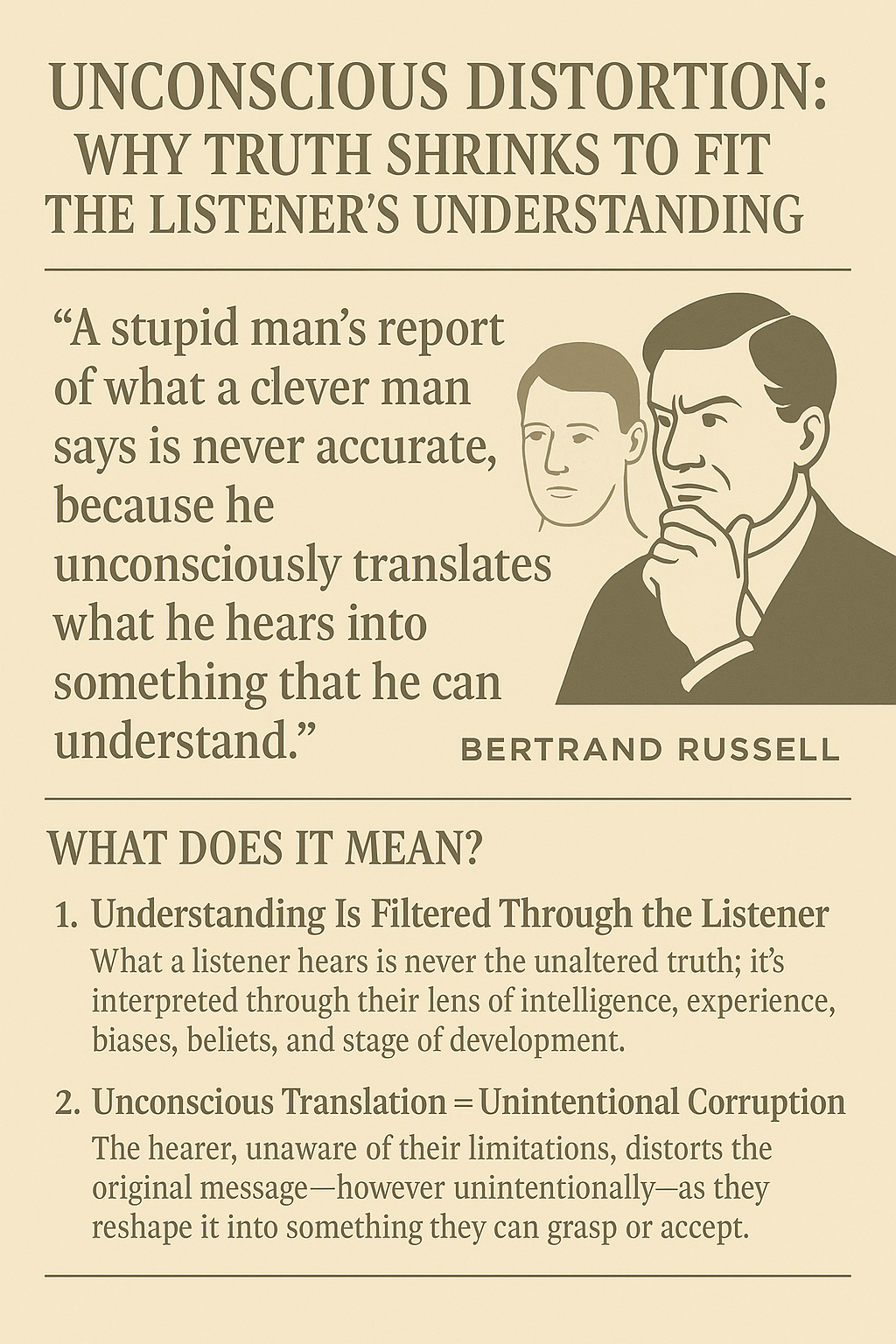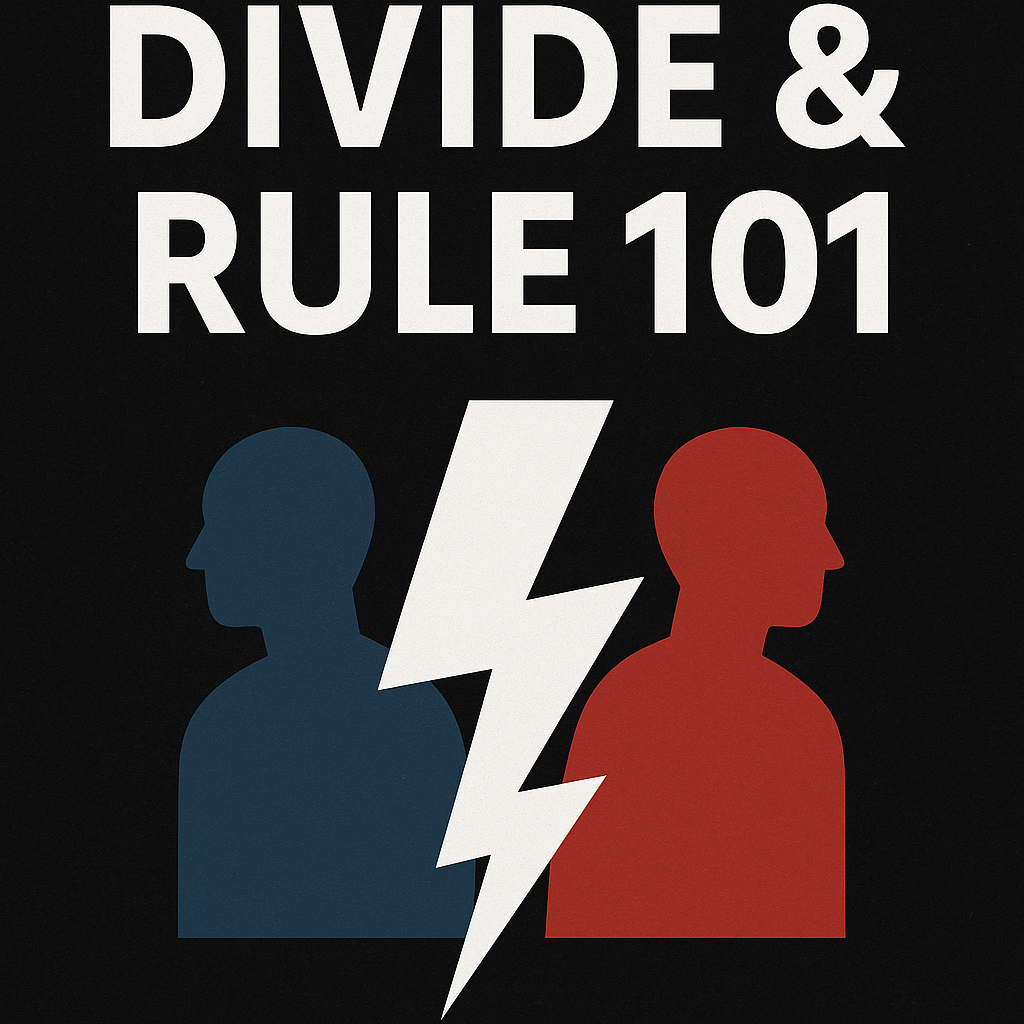Introduction: The Gap Between Transmission and Reception
Communication is often treated as simple: speak, listen, understand. But in truth, communication is fragile, layered, and deeply subject to distortion. Bertrand Russell’s quote uncovers a profound truth: even when truth is spoken clearly, it is not necessarily received accurately.
This distortion is not always intentional. In fact, it is most dangerous when it is unconscious — when the listener does not realize they are reshaping the truth to fit their limited frame of reference. This article explores why this happens, how it shapes our moral and cultural decline, and what it demands of those who carry truth.
Truth Filtered Through Intelligence and Maturity
Every person interprets new information through their existing frame of reference. That frame is shaped by:
- Intelligence
- Emotional and moral development
- Personal experiences
- Cultural conditioning
- Spiritual readiness
When someone hears a truth that exceeds their current comprehension or moral stage, they unconsciously “translate” it downward. They simplify, misrepresent, or reinterpret the truth until it fits within their paradigm. In doing so, the truth is no longer the truth — it becomes a flattened or even inverted version of itself.
Stage Conflict: Why Higher Truth Feels Threatening
Using Lawrence Kohlberg’s Moral Development Theory as a lens:
- A Stage 4 person (Law & Order mindset) may reject a Stage 6 truth (Conscience and Universal Principles) because it threatens their institutional comfort.
- A person in Stage 2 (What’s in it for me?) may mock sacrificial love as foolishness.
This misunderstanding isn’t due to malice. It’s due to moral immaturity. The higher truth causes cognitive dissonance, so the person instinctively reshapes it to fit their level of comfort, familiarity, or control.
Biblical and Spiritual Alignment
This principle echoes deeply in Scripture:
“Seeing they see not; and hearing they hear not, neither do they understand.” — Matthew 13:13
Jesus taught in parables not to simplify but to shield truth from those not ready to receive it. For those with eyes to see, the parables revealed eternal laws. But for those stuck in shallow religiosity or pride, they merely heard stories.
Truth is dangerous to those who love comfort more than wisdom.
The Dangers of Distorted Transmission
When someone distorts a message due to their limited understanding, several things happen:
- The message becomes a caricature: It may be reduced to a stereotype or strawman.
- The speaker may be misrepresented or even vilified.
- The hearer walks away thinking they “understand” when in fact they have replaced truth with a palatable counterfeit.
This leads to:
- Misquoting wise voices
- Shallow slogans replacing deep principles
- Truth-tellers being rejected as heretics, extremists, or fools
Tapestry Integration
This quote and concept connect deeply with the broader framework:
- Frame of Reference: Each person hears truth through their own perceptual and cognitive lens
- Transitional Characters: Those who break generational chains must communicate truth carefully across levels of readiness
- C.S. Lewis’ Abolition of Man: When society loses its moral compass, even language and meaning decay
- Feeding the Good Wolf: People often hear only what feeds their preferred worldview
- Stage 4 Legalism vs. Stage 6 Principle: Legalists misinterpret reformers as rebels
Application: How to Speak to the Misunderstanding
If you carry truth, you must:
- Speak with discernment, not just passion
- Recognize where the listener is, not where you wish they were
- Use parables, metaphors, and questions to open rather than overwhelm
- Accept that some will always distort your words — and still speak
If you are the listener, you must:
- Humble yourself to learn from those wiser than you
- Examine your filters and assumptions
- Ask, “What might I not be seeing?”
- Stop translating truth to fit your comfort zone — let truth transform your zone
Final Word: Translation vs. Transformation
Bertrand Russell warns that a message doesn’t just risk getting lost in translation — it risks being perverted by unconscious limitation.
Let us not reduce truth to the size of our comfort. Let us rise in intelligence, virtue, and humility to receive truth as it is. For in that receiving, we are not just educated.
We are changed.






